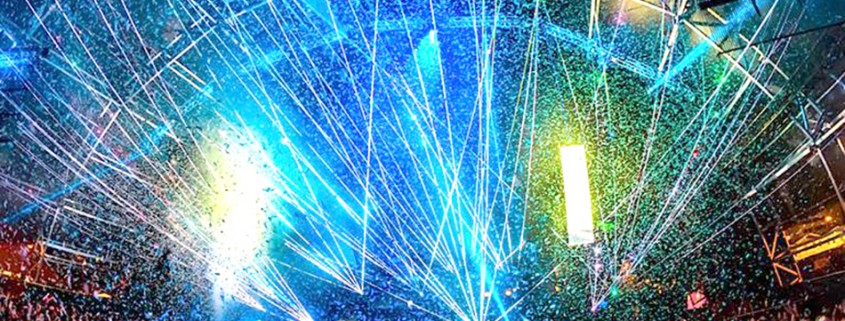USC music classes destigmatize electronic dance music
Situated in the heart of one of the most influential music cities in the world, USC has resources that link both students and faculty to the music industry. I have been able to take a plethora of classes here at USC through the Thorton School of Music that have not only encouraged and helped my understanding of musical knowledge, but have also opened my eyes even more to the world of EDM that I love so much.
In 2013, USC began a controversial and interesting feats of musical education. It began the first Electronic Dance Music class here on campus, which has since became extremely popular. Taught by professor Sean Nye, it is the first in a line of controversial and innovative classes.
Though Electronic Dance Music has been around for much longer than most people imagine, I only came to understand and be passionate about it maybe seven years ago. Even then, this genre presented itself as an incredibly taboo one.
Known only for its relation to drugs, sex and alcohol, EDM was viewed as corrupt and hedonistic and was restricted to the underground warehouse raves. So, whenever I’ve ever told anyone that I was taking this history of EDM class here, the immediate response is, “Well, how can they have a class about a genre that’s only been around for a few years?”
At first I used to ask the same question. I was in love with EDM. I loved the way it broke borders between societal stigmas. Most of all, I loved the way it fit directly as the voice of our generation, specifically with its place in the future of the music industry. However, I never really knew where EDM started.
If you had asked me a couple of years ago where I thought EDM originated, I would have scoffed and said, “Maybe in some Euro trash hostel in Amsterdam or Stockholm.” I pictured frosted tips in bug-eye glasses with kandi all up their arms dancing in weird robotic motions. Though this stereotype has an entertaining kernel of truth, as evidenced by the attire at any EDM festival, it is only a singular narrative of the history of EDM.
What USC and its class on EDM have done is change this stigmatized narrative about EDM and its technical origins. Just as gangster rap, reggae and some other genres were easily dismissed and associated largely with small cultural minorities, EDM has largely been dismissed as a drug crazed mess of teenage angst and sexual frustration.
What changing this narrative, through education and conversation, has done is open our eyes to the historical and cultural importance of Electronic Dance Music. For example, EDM has had significant influence in the black and gay rights movements, as house music started in black, gay and Latino underground clubs in America. EDM has also had significant historical context in European post-war understandings of society.
Probably most importantly, EDM has such an important musical implication in the current and future music industry, a fact that interests me, as a music major, the most. As a product of the new age of technology, EDM has the implication that it exceeds the singular abilities of traditional human-run instruments. The use of technology and never-before seen sonic production means that EDM can survive forever. It has an unbelievable capacity for evolution and adaptation. Within the industry, this genre surpasses any others before it in its infinite future possibilities.
We constantly go on and on about breaking down stigmas in society. But the issues we face can’t be stopped by online surveys and bogus half-formed ideas to “change the world.” Music, art and other cultural practices have time and time again shown to be vehicles for social change. We have been educated about pop, rock and soul and their cultural and historical contexts, but we’ve never come to recognize the significance to our social evolution that EDM has produced. By educating ourselves about the history of EDM, whether by taking this great class at USC or through self-education, we can begin to understand a more expansive context of our current culture.
For music students, it’s even more important to recognize and be educated about this aspect of music because it really is a driving force within the industry, not only now but also in the future. I’m sure there are many people of an older generation that would disagree with my zeal and condemn my passion for this genre, but as we’ve seen with many other realms, when we experience and study history, we can learn so much about our future. This applies to EDM as it continues to hit the radios, festivals and our everyday industries and cultures.
Madison Cisiewski is a sophomore majoring in music industry. Her column, “Electric Industry,” runs every other Monday.

